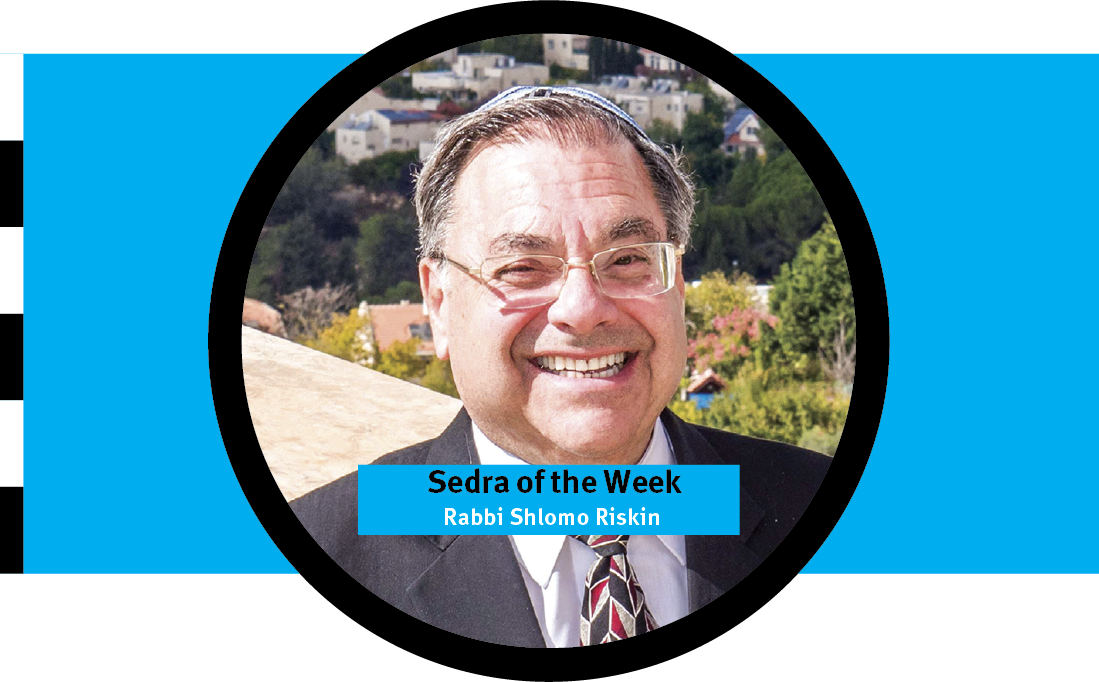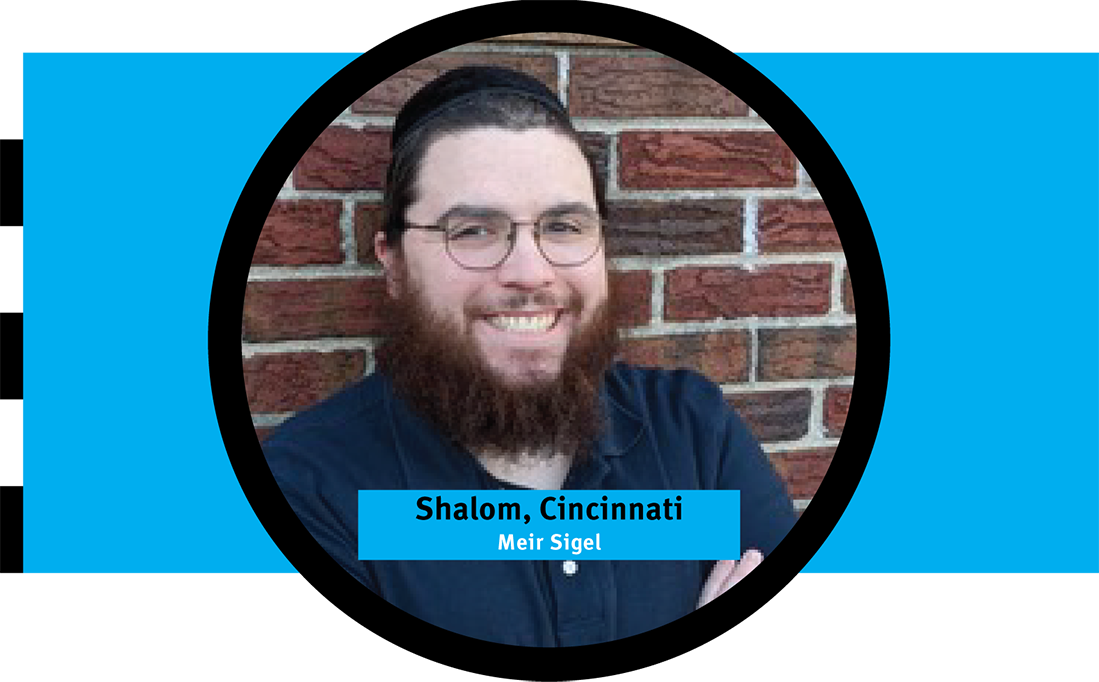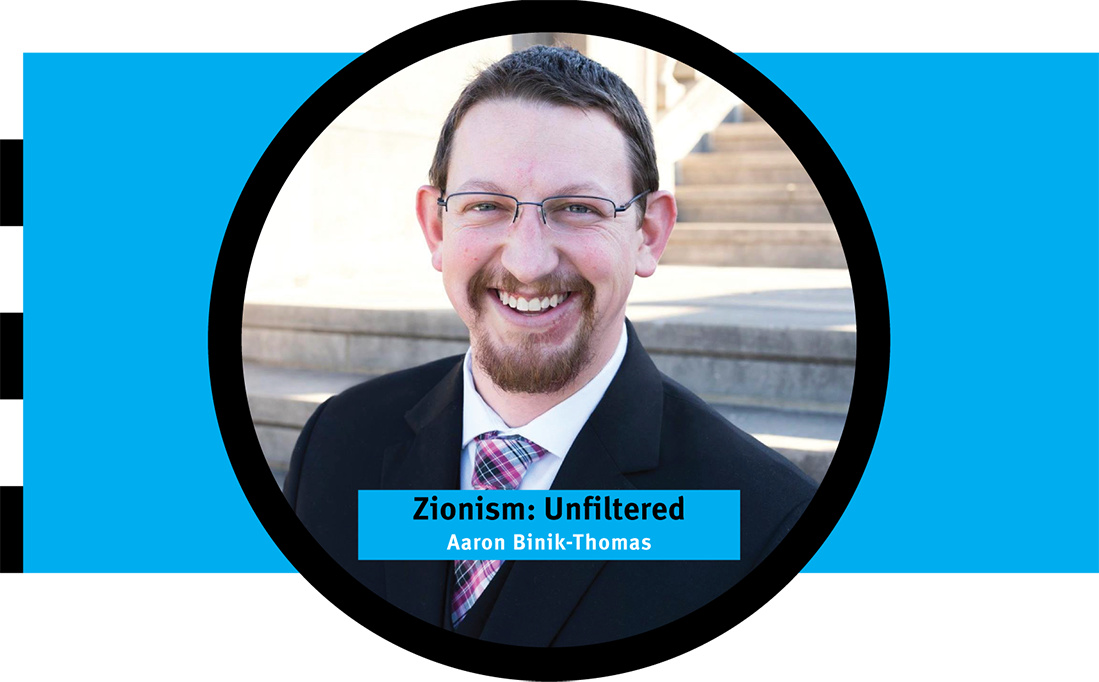Efrat, Israel – Not by bread alone does a human being live, but rather by that which comes forth from the Lord’s mouth does a human being live. (Deuteronomy 8:3)
How does the Bible view “life,” that span of time that every individual desperately wishes to preserve and to lengthen, but which is rarely properly utilized? The sad truth is that no one is quite certain how best to use whatever time he/she may be given or to what purpose to dedicate it. How best to “spend” one’s life is the question of questions, and one who lives without asking and answering that question runs the risk of leaving this world without ever having lived at all.
Apparently the Almighty came to the conclusion that the newly freed Israelites were not yet ready to enter the Promised Land; they required an educational “training” period of forty years — a complete generation — in the desert no-man’s-land. They were to experience a kind of “trial by heat and by cold,” with lessons to be learned by a strange mixture of divine bounty mixed together with human uncertainty:
You shall remember the entire journey on which the Lord your G_d led you these forty years in the desert in order to afflict you, to test you to know that which is in your heart; will you keep His commandments or not? He will afflict you and He will make you hungry; He will provide you with the manna to eat which neither you nor your ancestors experienced previously in order to teach you that not by bread alone does a human being live but rather by that which comes forth from the Lord’s mouth does the human being live. (Deut. 8:1–3)
This major desert experience of the manna was a kind of “timeout” from the Garden of Eden punishment that “by the sweat of your brow shall you eat bread.” On the one hand, G_d was the beneficent Provider of food, a food which the Israelites only had to gather rather than to manufacture, with every individual receiving precisely what he needed each day; on the other hand, the Israelites had neither the discomfiture nor the exhilaration which is derived from the competition, the ingenuity, the sickness unto death of failure and the dizzying satisfaction of success, which accompany the backbreaking tension-producing dedication to the market place or the agricultural farm. What was the significance of the manna? Which lesson did it convey?
The most ancient (and I believe, authentic) versions of the rabbinically accepted Aramaic translation of the biblical text, Targum Onkelos, translates the last words of the verse we have just cited: “Not by bread alone does the human being exist but rather by that which comes forth from G_d’s mouth does a human being live.” Targum differentiates between the bread necessary for human existence, and the word of G_d essential to human life. “Existence” is physical subsistence; “life” is essence, the word of G_d, the life of spirit, of intellect, of sensitivity, of love.
For a clearer explanation of Targum’s intent, let us study the second mishna in the seventh chapter of Tractate Shabbat, where the mishna provides us with the list of the thirty-nine prohibited physical activities on the Sabbath (melakhot). The Midrash generally assumes that the source of these prohibited activities is the list of very constructive acts involved in the building of the Tabernacle to G_d, the Mishkan (Ex. 31:13). Whichever creative acts were involved in the construction of the Tabernacle were prohibited on the Sabbath. However, one of the prohibited activities of this mishna is “baking,” and in the construction of the Mishkan the dye extracts of the plants had to be “boiled” in order to color the fabrics used to beautify the Sanctuary. So why does the mishna list “baking” rather than “boiling”?
The Talmud explains the discrepancy by saying that the mishna wished to highlight the procedures in bread manufacture; and indeed when looking at the prohibited acts from this perspective, the entire mishna assumes a wholly different focus. First it prohibits bread manufacture, then clothing manufacture, then leather manufacture, and finally acts of building. In effect, the mishna is teaching that the search for food, clothing, and shelter — so central to physical existence and nutritional subsistence — is to be eschewed on the Sabbath day. The days of the week are for physical existence; the Sabbath is for spiritual and intellectual life! And existence and life are the two most crucial elements in our human sojourn in this world.
The truth is that animals, no less than humans, also require food, clothing (protection from the elements), and shelter. What makes the human being uniquely human is that which goes beyond physical existence: the spiritual spark of G_d within him/her, the soul, the heart, and the mind of the human being, which enables him/her to think, to give, to communicate with the other, to love, to repair, and to create.
Most human beings spend their lives working for their physical existence, amassing commodities and the ultimate commodity (money), and collecting objects and things. In the desert they were freed from this pursuit, with the exception of the little time it would take to gather the manna — and no one could take more than his/her needed portion. They could spend the great majority of their time receiving – and pondering over — G_d’s words, G_d’s desire that we share with those less fortunate, G_d’s gift of family and friendship and community and love. The Sabbath day prohibits physical work but stresses family togetherness, Torah study, communal prayer, time-out for G_d, meditation, and nature walks; the Sabbath is a day of life, not mere existence!
The desert experience was a kind of eternal Sabbath, a taste of a more perfect world, when we learn to do without material extras but would hopefully begin to understand that the real purpose of human life would be to live by G_d’s words. And in that more perfect world, we would hopefully learn that the necessities for our existence — just as our existence itself — is fundamentally a gift from G_d, and that the ultimate purpose of our existence is to link ourselves to life, to G_d, to His will, and to His eternity. On the Sabbath, we sanctify wine, we bless the ĥalla bread, we use the table of food as a means for songs of praise to G_d and words of Torah, and we link existence to essence, subsistence to G_d.
No wonder, then, that the Hebrew word “ĥayyim” (life) is always in the plural, because there can be no meaningful human life devoid of loving relationships with others. The two letter “yud’s” (or two yids, Jews) in the center of the word are the shortened form of expressing G_d’s name, while the outer Hebrew letters “ĥet” and “mem” form the Hebrew word “ĥom” (warmth); love, sensitivity, and caring are central for meaningful human activity on earth. I have never met an individual on his deathbed who regrets the hours he didn’t spend in the office — but most individuals on their deathbed regret the hours they didn’t spend with family and close friends. People are not remembered for the structures they erected; they are always thought about for the lives they have touched and the human situations they have helped.
Rabbi Yitzhak of Berditchev once saw a person running to and fro, as if he were “chasing his own tail.” “Where and why are you running?” he asked. “I am running to make a living,” came the reply. “Just make sure that in the process, you don’t lose your life,” remarked the wise rabbi.
Shabbat Shalom
Rabbi Shlomo Riskin
Founder & Rosh Yeshiva,
Ohr Torah Stone
Founding Rabbi of Efrat





